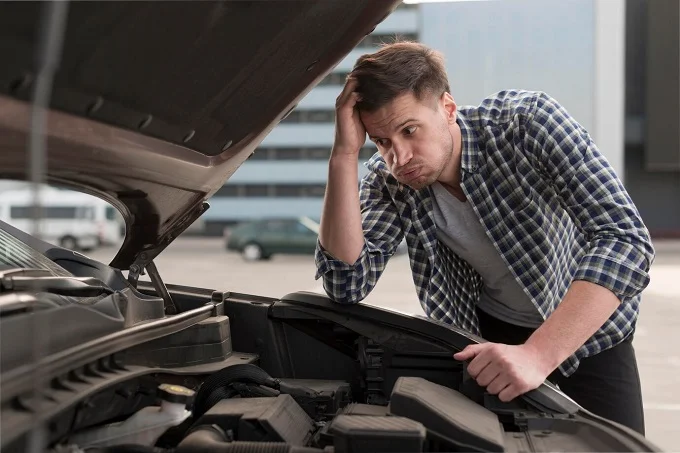Your car or truck’s engine is like its heart, powering you through your daily commutes and road trips. But like any essential part, it’s vulnerable to wear and tear, especially if not treated well. The last thing any driver wants is to face engine damage, but understanding the signs and how to prevent it can save you time, money, and headaches.
How Your Driving Can Damage Your Engine
Ever thought that your driving habits could be damaging the engine? It might sound surprising, but the way you handle your car on a daily basis can significantly impact the engine’s overall health. Let’s look at a few common habits that can lead to trouble:
Hard Acceleration
Do you enjoy that sudden burst of speed when you press the gas pedal to the floor? While it might feel exhilarating, hard acceleration forces your engine to work much harder than necessary. This sudden surge of power puts added strain on the engine’s components, wearing them down over time and potentially leading to serious damage.
Ignoring Maintenance
Skipping those routine oil changes or putting off scheduled tune-ups? Neglecting basic maintenance can cause your engine to suffer. Old oil, for example, loses its ability to properly lubricate engine parts, leading to friction, overheating, and eventual damage.
Riding the Brakes
Constantly braking hard can cause your engine to overheat. This habit forces the engine to work extra hard, especially in stop-and-go traffic. It’s not just your brakes that take a hit; your engine feels the strain as well.
Revving a Cold Engine
Many drivers have a habit of revving their engine right after starting the car. If the engine is cold, doing this forces the oil to move before it’s properly warmed up, leading to poor lubrication and possible damage.
Towing Beyond Capacity
Towing heavy loads or exceeding your car’s recommended towing capacity causes the engine to overwork itself. This extra stress can lead to overheating, faster wear, and potential failure.
By adjusting these habits, you’re already taking a huge step toward extending your engine’s life.
The Warning Signs of Engine Damage
Recognizing the early signs of engine trouble can help you address issues before they become costly repairs. Here are the five key warning signs to watch for:
- Check Engine Light – That little yellow light on your dashboard isn’t just a suggestion. If it’s on, your car’s system has detected something off. Ignoring it can lead to larger problems.
- Knocking Sounds – If your engine starts making unusual knocking or tapping sounds, it’s often a sign that something is wrong with the engine’s components, like the rods or pistons.
- Excessive Smoke – Blue, white, or black smoke coming from the exhaust is never a good sign. It can indicate anything from burning oil to coolant leaks or even internal engine damage.
- Decreased Performance – If your car is struggling to accelerate or feels sluggish overall, it could be an early sign of engine wear or malfunction.
- Oil Leaks – Puddles of oil under your car or an oil warning light are signs that your engine might be leaking. This can lead to insufficient lubrication and severe engine damage.
How to Prevent Engine Damage
The good news? A lot of engine damage is preventable. By staying on top of regular maintenance and making small adjustments to your driving habits, you can keep your engine running smoothly for years. Here’s what you should do:
- Regular Oil Changes – Make sure to change your oil as recommended by your vehicle’s manufacturer. Fresh oil keeps the engine’s components lubricated and reduces friction.
- Check Fluid Levels – Regularly check your car’s coolant, transmission fluid, and oil levels to ensure the engine is properly maintained.
- Use High-Quality Fuel – Using the right fuel grade recommended for your vehicle ensures the engine runs efficiently. Avoid using lower-quality fuel, which can leave harmful deposits in the engine.
- Pay Attention to Warning Lights – If a dashboard light comes on, don’t ignore it. Get your car checked by a professional to prevent minor issues from escalating.
- Allow the Engine to Warm Up – Before revving your engine or driving hard, give it a minute or two to warm up, especially in cold weather. This allows the oil to circulate properly.
What to Do When Things Go Wrong
Sometimes, despite your best efforts, engine trouble can still strike. If you suspect your engine is damaged, here’s what to do:
1. Stop Driving
This might seem obvious, but continuing to drive with engine problems can make things worse. If your check engine light comes on or you hear unusual noises, pull over safely and assess the situation.
2. Check for Obvious Issues
Look under the hood for any visible leaks or check your car’s temperature gauge to see if it’s overheating. If you notice oil or coolant leaks, it’s best to avoid driving the car until a mechanic has checked it out.
3. Call a Professional
Engine issues require professional attention. Get your car to a trusted mechanic as soon as possible. Trying to diagnose or fix engine damage on your own can lead to bigger problems down the road.
4. Consider a Tow
If your car isn’t safe to drive, it’s always better to call a tow truck rather than risk causing more damage by trying to drive it to the shop.
Final Thoughts: Keep Your Engine Healthy
Engine damage doesn’t have to be inevitable. By taking care of your vehicle and paying attention to how you drive, you can prevent many of the common causes of engine failure. Stay on top of maintenance, listen to your car, and don’t hesitate to call in a professional when something doesn’t feel right. After all, your engine is the heart of your car—treat it well, and it’ll keep you on the road for the long haul!
